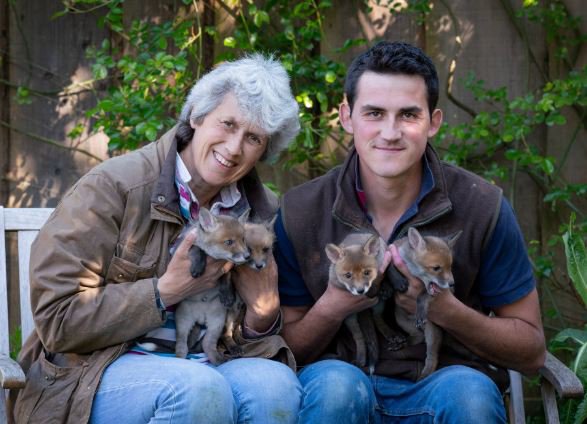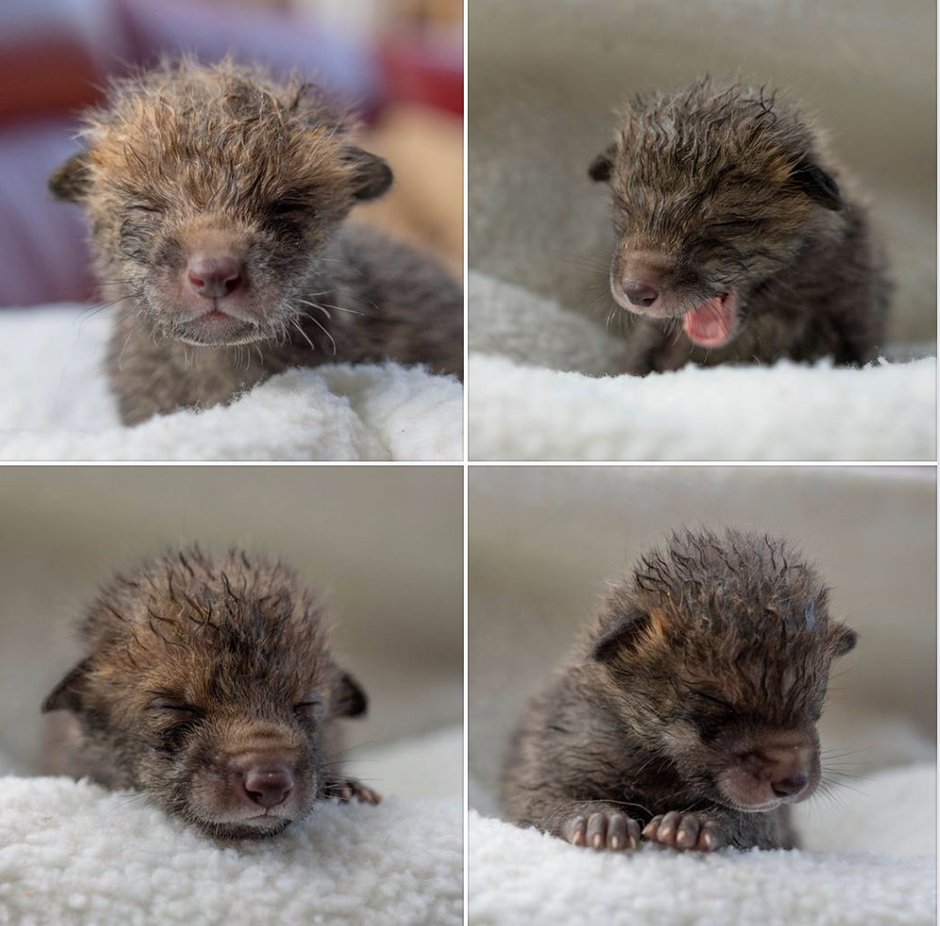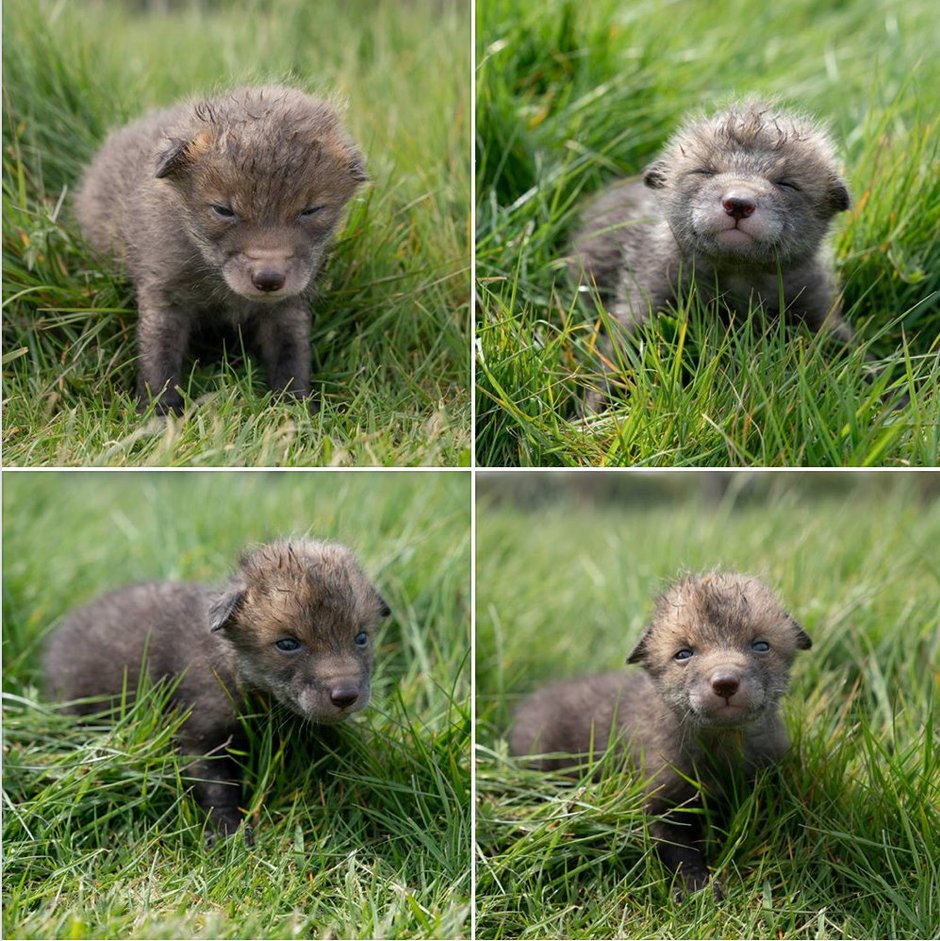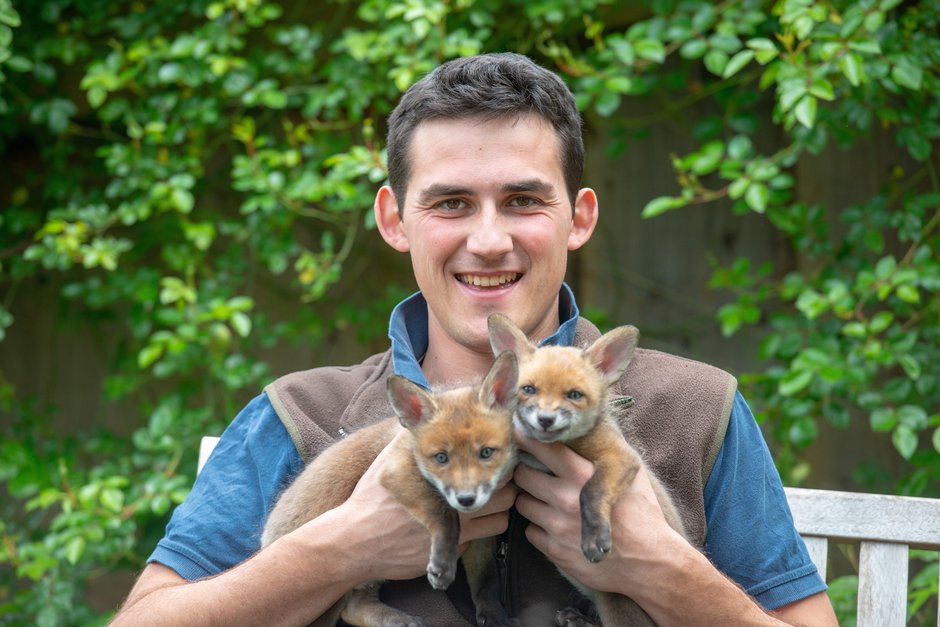Video by: Ashley Moran  Image by: Jean Rolfe
Image by: Jean Rolfe
A farmer saved the lives of four cubs after he performed an emergency C-SECTION on a dead fox on the side of a busy road.
Chris Rolfe, 24, carried out the operation after a female vixen was knocked out and killed by a car.
The farmer witnessed the crash happen and immediately stopped his vehicle to check if the fox was still alive or if it was suffering.
Chris was travelling back from his farm on the A272, near Cowfold, West Sussex at around 11.45pm when he says his “instinct” kicked in.
The countryman said he couldn’t leave a fox to die or suffer on the side of the road without checking on it first and seeing if he could help.
Chris, from Haywards Heath, West Sussex said: “I saw her on the road and stopped to check and see if she was suffering.
“It was instinctive otherwise instead of one life lost, it would have been the death of all of the cubs as well as the mum.”
After carrying out a few checks on the injured animal, he had found that the vixen had died but when he checked its stomach he could see it was moving – which indicated to Chris that she was pregnant.
He said he ran to his car to get a knife out and performed an emergency C-section on the fox – taking out four little cubs measuring around six inches long.
Although Chris did not have any veterinary training, he has previously performed a C-section during lambing season.
Chris then put them into his jacket pockets and drove them to his mum, Jean Rolfe, house where they have since be hand-reared.
He added: “I didn’t think about it, I just done it.”
 Image by: Jean Rolfe
Image by: Jean Rolfe Image by: Jean Rolfe
Image by: Jean Rolfe
The cubs are now seven weeks old and the family are working with the Fox Project – a registered charity dedicated to treating the Red Fox – to get them strong enough to go back into the wild.
The little furry youngsters have been named Ginger, Biscuit, Big tip and Little tip.
Chris said: “I am really pleased they are all healthy.
“It was just something I felt obliged to do, I wouldn’t want to see the mum suffer and that is why I got out of the car.
“And then when I realised she had passed away when I was checking her body, I saw her stomach moving.
“I couldn’t think about it too much, I just had to perform the C-section because every minute is crucial.
“After I got the cubs out, I took them straight to my mum’s and she cared for them – making sure they were clean and getting their circulation going, making she they were up and running.”
 Image by: Jean Rolfe
Image by: Jean Rolfe
Jean, 51, from Haywards Heath, who has previously cared for foxes with the Fox project, said they both acted fast when Chris arrived at her home with the cubs.
She added: “Chris put them in his pockets and delivered to me.
“They arrived all bloody, and in the wild mum would lick them to get clean.
“Mum would also have quite a rough tongue as well, which would help to get the circulation going. But I wasn’t going to do that.
“So we got a damp towel and just really rubbed them quite hard, harder then what you would think, and that actually washes them and gets the circulation going.
“We then put them in a cardboard box on top of a heater to keep them warm.
“Cubs also can’t pee and poo themselves and so mum would normally lick them.
“So we got damp cotton wool and cleaned those areas, to make sure they are able to go to the toilet because that is a major factor in what could kill them.”
Jean said she began feeding the cubs milk every 20 minutes which then went to “two hours, and three” and they now being weaned.
She added: “They are eating puppy dog food, plus frozen chicks.
“The reason being they would have fur, and bones and all sorts when they are in the wild. So we are trying to get them ready for the wild.
“It has taken a lot of care and effort to look after them. And thankfully all four survived.”
The cubs are under the Fox project programme and will aim to go back into the wild at the age of six months.
And during this time, the foxes will travel to other fox foster homes without Jean or Chris – where they can become more independent by themselves, trying to get used to new surroundings and smells.
If the cubs are not ready to be left in the wild at the six month stage, they will continue to travel to different fox foster homes until they can become more independent.
Jean said: “If Chris hadn’t stopped, they wouldn’t have survived. So Chris just got on with it and dealt with it.
“He was in that frame of mind, I guess because he was looking after the sheep his instinct was there.
“A lot of people talk about having foxes as pets, and even though they are lovely animals, they are wild and they need to be wild.”


